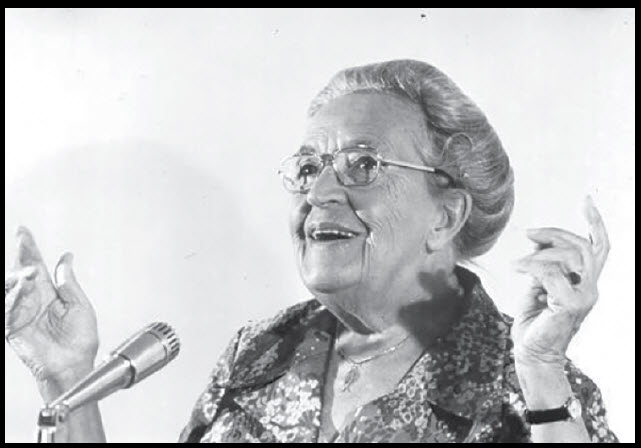 By: Ali Elizabeth Turner
By: Ali Elizabeth Turner
Many times, I have written, spoken about, and gratefully referred to the effect that the life of Corrie Ten Boom has had on me. A recent monologue on my radio show was about the fact that Corrie’s book, The Hiding Place, had been made into a movie again, and how much I was looking forward to seeing it. So, I wasn’t expecting to revisit her life any time soon, and yet, I can’t get away from one of the enduring stories of triumph-over-trauma that came out of her time in a Nazi death camp. It was there that she learned many secrets, including what has come to be called “thanking God for the fleas.”
When you read The Hiding Place, you see that between Corrie and her sister, Betsie, Corrie was the one who struggled far more with her attitudes, with forgiveness, with trust, and with pride. Boy, I can relate! Betsie, on the other hand, was the comparative angel, and while Corrie adored her, Corrie felt about herself that she had drawn the short straw in the “personal development” department. She just wasn’t as “good as Betsie.” It was in the camp that Corrie discovered a powerful technique which neuroscientists call “reframing,” or looking at an inarguably difficult, even traumatic event and seeing what positive thing may be hiding there.
Corrie and Betsie were moved from one hellhole of a barracks to another that had an even greater level of distress residing there: it was infested with fleas. The straw in their bunks had been fouled, and let’s just say that housekeeping was not going to be showing up anytime soon for turn-down service and chocolates placed on the pillow at night time! As they surveyed their situation, Betsie came up with the idea of “thanking God for the fleas,” and Corrie wasn’t having it. Corrie could thank God that she and Betsie were still alive, still together, but thank Him FOR the fleas? Not on your life!
What was Betsie’s rationale? As a believer, it was her only hope for survival to hang on to Scripture, even when doing so seemed insane. Surely the admonitions to be thankful “in all things,” and “for all things” weren’t intended for a death camp, were they? But Betsie was adamant, and Corrie started out by SAYING she was thankful for the fleas. It took her a while to get there, and then she reached a place where she was firmly in the grip of gratitude, and spent the rest of her life telling people all over the world why the fleas saved her life.
What they learned later was that because of the infestation, the guards stayed as far away as they could. There were no rapes there, no beatings, no terrorizing-for-sport. The fleas made it Corrie’s and Betsie’s safe place. It was there that they had Bible studies, (using a smuggled, tattered Bible that was never found), prayed with and for each other, led other inmates to Christ and succeeded in building community. They were unbroken even in their brokenness, and became people that Hebrews describes as those “of whom the world was not worthy.”
Gratitude has a loving, powerful, and tender grip. My intention is to get into its grasp and stay there. Join me?










 June 20, 2025
June 20, 2025



